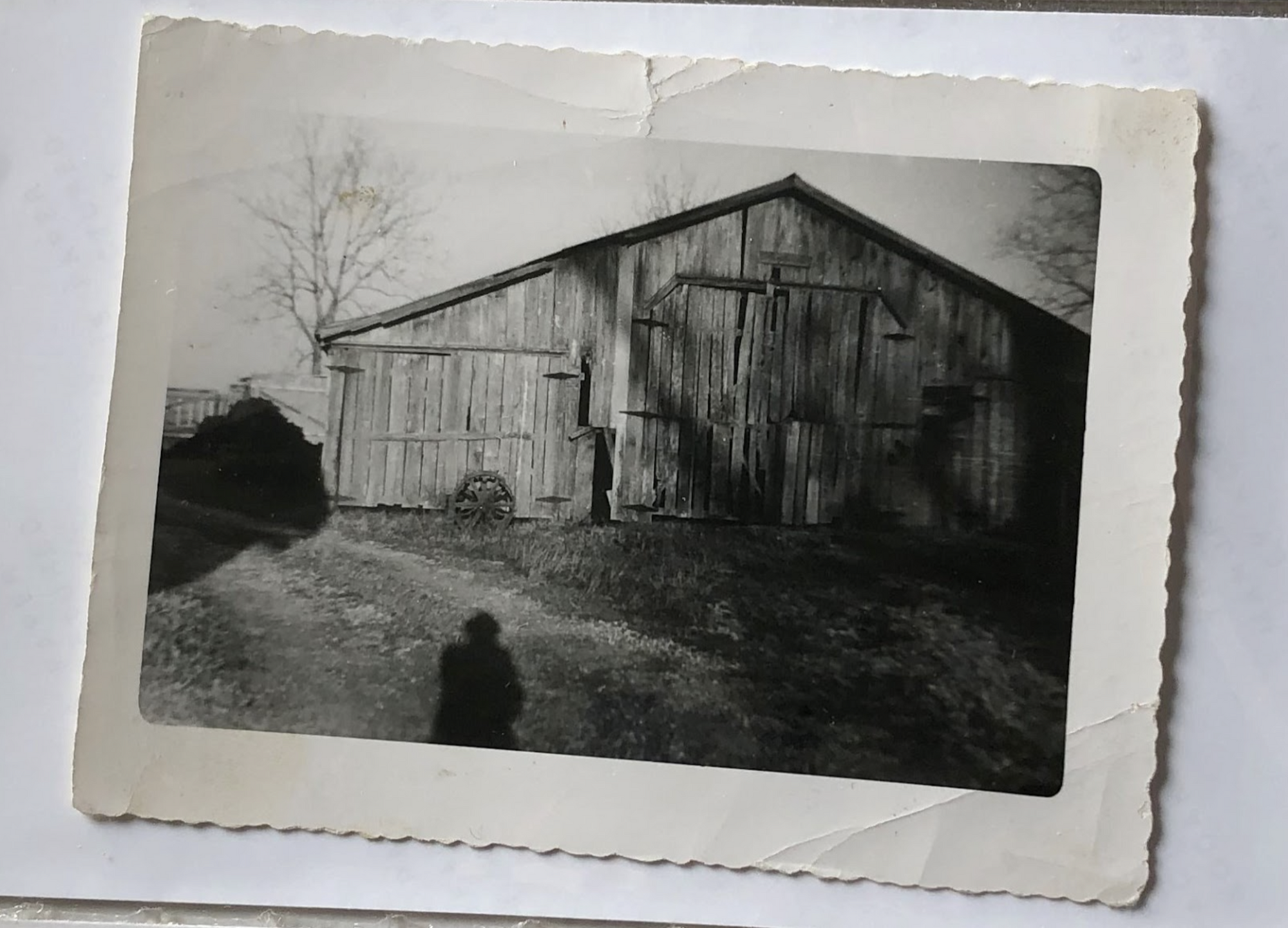Grandfather Myth
Camille Gros
→BFA PR 2022

*Portrait of Nolan.
Nolan used to run a gas station.
He has tan, wrinkly, leathery skin, and pale soft palms. Hands for running the lawn mower, moving sandbags from one side of the bayou to the other, and steadying a worried daughter. His eyes are light brown for skimming the farmer’s almanac, and keeping watch over his big bright pecan tree. He wears shirts from the It-Shop embroidered with “Fred’s Auto.”
He grew up in the cane fields, with tall ambivalent plants bearing leaves that tear at uncalloused skin. In spite of themselves, they produce fine sugar for the pantry. He was drafted young in the Vietnam War. “Nothing to do about it,” he’ll mutter when all has passed. Too low for his wife to overhear. Later, he got a steady job welding at the steel factory.
He met his wife serving him beer after he got off work. They were married in a Catholic church.
Big brass candle holders (he could never solder that clean), white washed pews, a grand crawfish boil. His wife is four inches taller than him. She thinks he’s plenty.
His daughters went to college. His daughters had children. His wife bought a leather chair, brown like his skin. He got dementia. The chair started to remember his weight. An impression is left where he sits. The leather wrinkles around him. He listened to Fats Domino. He mowed the lawn and moved the sandbags from one side of the bayou to the other.
My father brings Nolan across town to buy snowballs from his granddaughter at her work. “Tigerblood and Mango,” he says.
“What size?”
“Large.”
Tigerblood is tart, like cherry, to cut the gentle sweetness of Mango. The syrup stains his tongue.
It’s good to see her. When she was six, she wore roller skates in his living room. Now she nestles shaved ice into fragile paper cups. He rests his sore knees on the shop’s little wooden bench and stares up at her with a furrowed brow and glimmering eyes.
The flavors mix at the bottom of his cup. Ice melts and turns saccharine brown.
Nolan and my father return home. The sun grazes low.
He pours black coffee into his mug and sips it—bitter. He is not a talkative man. Instead, he makes sure things are safe enough and well-kept. Mowing the lawn, trimming the pecan tree, moving the sandbags.
Past sundown, the record player starts again: “I will meet you and I'll greet you/When my dreamboat comes home.” Fats Domino swings his voice over the dim living room. The leather chair creaks as Nolan gets up.
When he dances, he can jump or spin. He can hold his wife close. Or show his daughters how things look when they turn unsteady. He wears his “Fred’s Auto” shirt untucked. You don’t have to wear your socks on the tile floors when you dance.
His wife danced with him in shiny brown shoes when they were married. Lovely new leather which held her too tight. Shoes that will have been worn-in, in testimony of those dancing feet.
Nolan can’t lift steel at the factory anymore. His hands stay firm, though softened. His muscles are strong, but his bones have grown old and unsure. Nolan can’t remember his daughters’ names. He can mow his lawn cleanly for them to come home to. On occasion he will dance. Mostly, he will listen.
Lamps click off to be turned out for the night, and the murmured shuffling of slippers passes to the bedroom down the hall. He settles into his wife’s leather chair. It has become cracked at the seams, dry but sturdy enough to support his weight. Its skin, which has grown soft to let his body rest, cradles him to sleep.